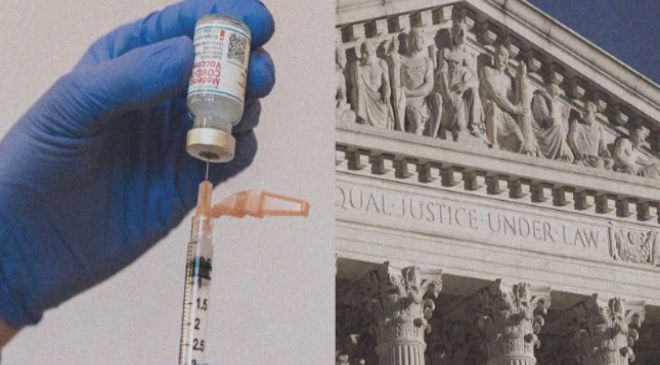After making headlines with its rigorous vaccine mandate, the airline is facing several employee lawsuits. How to prepare for your own legal challenges.
United Airlines has an impressive 97 percent vaccinated workforce, but six employees who sought accommodations are suing, saying the offered accommodations are essentially a termination.
The Equal Employment Opportunities Commission (EEOC) clearly said that companies could require mandatory vaccinations as long as they offer accommodations under the Americans with Disabilities Act and religious exemptions. President Biden’s mandate added to the permission to mandate making companies with more than 100 employees either mandate vaccines or have employees undergo
weekly testing. (The exact requirements have not yet been released, but the Occupational Safety and Health Administration (OSHA) should release them soon.)
United Airlines’ accommodation for people who turned down vaccinations for religious or medical reasons is an unpaid leave of absence. That, in the employees’ minds, is termination by another name. United says they are looking for a solution for employees who don’t work on flights, but those who go up in the air must stay on leave until the pandemic “meaningfully recedes.”
Is an unpaid leave of absence a reasonable accommodation?
Of course, the lawsuit has just been filed, so we don’t know the outcome, and attorneys disagree. Employment attorney Jon Hyman, a partner at Wickens Herzer Panza, takes United’s side. He writes:
I’d tend to agree with United’s opinion about this lawsuit. The law appears to be on its side.
1. The law grants employees the right to a reasonable accommodation, not the employee’s preferred accommodation.
2. Per the EEOC and courts, an unpaid leave of absence is a reasonable accommodation.
However, Employment Attorney David Miklas disagrees. While he supports an unpaid leave as a last accommodation, he points out that employees are not likely to see such leave as an accommodation. I take Miklas’ side here. If this goes before a jury, it will be challenging to explain how this is an accommodation at all–especially when United had planes flying before vaccine availability.
Pushing back on religious accommodations.
Federal law requires that you accommodate someone’s sincere religious belief as long as it doesn’t cause an undue hardship on the company. The key, though, is how to determine what is and what is not a sincere belief.
A recent case involving a student at Williamson College of the Trades in Pennsylvania showed what can happen when you push back. While this is an education case, the same principles apply to your business.
In this case, the Plaintiff argued that receiving the vaccine violated his Catholic faith due to being created with fetal cells. The school countered that the vaccine does not use fetal cells, and the Catholic Church officially said the vaccine is morally permissible. That should be enough, but the school pulled out the trump card: the Plaintiff
received other vaccines created with aborted fetal cell lines.
While I’m not a fan of questioning people’s religious sincerity, this is something that you can do. Please consult with your local employment attorney before taking any adverse action against an employee claiming a religious exemption.
What you can do to prepare.
While reasonable accommodations for both ADA and religion can vary from business to business and job to job, you need to start thinking now about how you’ll approach accommodations. Will you be like Williamson College of the Trades and push back to verify a sincere belief? Or will you take the employees’ word for it?
For ADA accommodations, have your paperwork ready. In this case, the doctor gets to decide if an employee can be vaccinated. If the doctor says the employee cannot be, then the interactive process begins.
Do you have jobs that can be done at home or separated from others? Do you believe that masking and social distancing can be enough? Do you want to mandate vaccines, or (if you fall under Biden’s mandate) do you want to allow people to test? If you have fewer than 100 employees and are not a government contractor, you don’t have to require testing or vaccines (unless your state requires it).
Start thinking about your options now. The more effort you put into this now, the easier it will be when an employee says they can’t receive the vaccine.





























